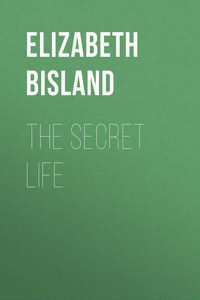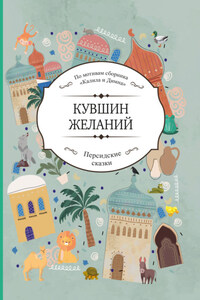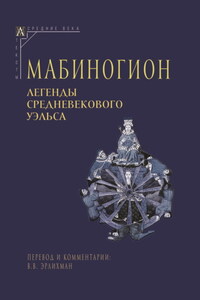June 21.
L'Enfant Terrible
"The very Devil's in the moon for mischief:
There's not a day, the longest, not the twenty-first of June,
Sees half the mischief in a quiet way
On which three single hours of moonlight smile."
At my age, alas! one no longer gets into mischief, either by moonlight or at midsummer, and yet to-day all the tricksey spirits of the invisible world are supposed to be abroad – tangling the horses' manes, souring the milkmaid's cream, setting lovers by the ears. Some such frisky Puck stirs even peaceable middle-aged blood at this season to mild little secret sins, such as beginning a diary in which to set down one's private naughty views – the heresies one has grown too staid and cautious to give speech to any longer.
All, I think, have some Secret Garden where they unbind the girdle of conventions and breathe to a sympathetic listener the opinions they would repudiate indignantly upon the housetops; but I know of no such kindred soul – indeed my private views are so heretical that I should tremble to whisper them even into the dull cold ear of night, lest I should cause it to turn pink, and thereafter hymns would not purge it. Hence no resource remains to ease my bosom of its perilous stuff but the unprotesting innocence of the blank pages of a diary.
There is a story concerning the king of some ungeographical country, to whom came two adventurers of cynical tendencies, professing to be able – given a certain allowance of jewels and precious metals – to weave a garment of exceeding richness and of such subtle texture that no monarch on earth might hope to match it. Setting up a loom and providing themselves with ample materials from the Royal treasury, they went through the motions of stringing a warp and thereupon industriously threw empty shuttles back and forth.
When the king, accompanied by his court, was summoned to observe the progress of the famous web, the puzzled ruler could see nothing but an empty loom, but before the eager explanations of the enthusiastic weavers, who pointed out here a glowing dye, there a splendid pattern, and having regard to the non-committal countenances of the courtiers, the king nodded sagely and waited developments.
"Best of all, Sire," cried the cheerful rogues, "so magical is this robe we weave, that only those can see it whose tongue has never uttered a lie, whose hands have never taken a bribe."
Rises thereupon instant chorus of praise of the beautiful fabric from a unanimous court. Next day a solemn procession through the streets of the capital to display to the world the magic robe. Amazed multitude staring at the king in pompous dishabille, but hearing the courtiers' admiring cries, no man willing to admit his own blindness – when up speaks Tiresome Child: "Mother, why does the king ride abroad in his shirt?"
General outburst of mortified veracity, and futile search for the discreetly vanished adventurers.
So ends the story. But nothing of the sort really took place. Instead, l'enfant terrible was slapped and put to bed, to meditate upon his ill-timed outspokenness, and next day, and all the days thereafter, sees what his companions see. I know, because I myself am that Tiresome Child, and because my uncomfortable eyes refuse to see the imaginary robe in which so many kings of this world are dressed I have spent a large part of my life in disgrace. At last and tearfully I have learned to hold my tongue, but when the tricksome spirits of Mid-summer Eve are abroad, I get out pen and paper and, where no pious ear can be violated, secretly vent my elderly naughtinesses. My respectable acquaintances will be all the safer in consequence that I have an inviolable confidant of the real thoughts that lie behind my but slightly wrinkled brow and unrevealing eyes. Thackeray once said, "If women's eyes could only be dragged, what queer things one might learn."… Ah, the Secret Life! – who among us can guess at the thoughts that are concealed behind the clear brows and frank-seeming eyes of even those nearest us?
We live our lives draped and masked in our own bodies; forcing those bodies to speak the words, perform the actions expected from them, while we dwell alone within, thinking and wishing what we never, or rarely, express. It is this that drives us to diaries – the need to somewhere, somehow, speak the truth in a world of conformable lies. It is of no use to slip aside our masks or raise our draperies for an instant, in the hope that our fellows will recognize a hand or an eye like their own, and that thereupon even one of our companions will invite us to come out from under our robe and walk about with him friendlily, without disguise. Instead our companion makes signs of distress and resentment through the veil of his concealment, and we hastily readjust the mask and domino and resist further temptation to find a heart akin.
"It takes," says Thoreau, "two to tell the truth – one to speak and another to hear."
Called upon once to help a grief-stricken mother to lay away the belongings of a boy summoned suddenly out of life, we unearthed among his abandoned treasures a curious collection of odds and ends concerning which we could imagine no value that should have moved him to keep them by him. A shell, a bit of ribbon, a rusty nail; scraps of paper with a scribbled line or two; cuttings, whose printed words referred to nothing which seemed to bear in any way upon what we might guess of as touching his life.








